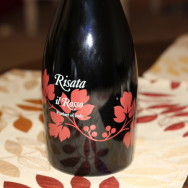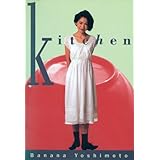As far as cookbooks go, Andrea Reusing‘s Cooking in the Moment: A Year of Seasonal Recipes, is the cream of the crop. Rather than containing an overwhelming number of recipes that require lots of advanced technique and special tools, Reusing approaches cooking in much the same way I do—cooking is about enhancing the experience of eating fresh, quality ingredients, not masking the taste of vegetables in a mess of spices and sauces. In a lot of ways, this cookbook can be read as a carefully crafted food journal, with dates, stories, and incredible photographs; however, it contains a lot of good advice and technique tips as well.
 Let me preface this by saying that historical fiction is, by far, my favorite genre for novels. (The same is not necessarily true for poetry and film though.)
Let me preface this by saying that historical fiction is, by far, my favorite genre for novels. (The same is not necessarily true for poetry and film though.)
Elizabeth Kostova’s novel, The Historian, is in the upper echelon of the historical fiction genre; the story is woven together with strands of psuedo-historical and anthropological research of folklore.Couple this approach to story telling with an array of eastern European backdrops and the resulting novel is quite mesmerizing. However, before I delve too far into the accolades of this novel, I must admit that my expectations for this novel and what it actually is proved very different. I was outraged that just a well-written historical novel could bridge so quickly from a study of eastern European folklore to a fantastical story of vampirism. And yet, despite this jarring merger, the convincing characters and impeccable pacing lulled me back into the grips of this riveting tale.

Having recently relocated from a middle-of-nowhere college town to a slightly less middle-of-nowhere state capital, Columbia, I have spent a lot of time wandering around and exploring. I have found that free, local newspapers make exploration a little easier—at first, anyway. Very early on I managed to find some awesome Farmer’s Markets (local everything! Including produce, herbs, meats, seafood, and better yet, apple, peach, and blueberry donuts baked on-site!) and believed that I was truly in heaven; then, as I was savoring my blueberry donuts, I decided to find the local coffee shop I had read about in one of the local newspapers.
What I found was mere minutes from the farmer’s market, offered individually brewed cups of coffee, and had a season brunch menu that I just couldn’t resist. The place: Drip. I’m no coffee aficionado, and honestly judge coffee shops more on the quality of their hot chocolate than the coffee, but one sip of their espresso milkshake and I was hooked.
Kitchen, Banana Yoshimoto’s first novel, encompasses the tumult of familial relationships and the immense ability of a home to comfort its inhabitants. This is a story that I first read in Japanese and only later in English, it is a story that I have turned to in sorrow as well as in jubilation, it is a story predominantly characterized by quietness, and it is a story of defining oneself against a backdrop of loss and loneliness.
The brevity and lyricism of this novel, in both form and scope, echo the passing of grief. The opening pages introduce the narrator,Mikage, in a state of mind somewhere between waking and sleeping; she is quietly mourning the death of her grandmother and sleeping in the kitchen, next to the refrigerator, to ward of the loneliness creeping into the house. Even when Mikage is befriended and taken in by Yuichi and Eriko, she finds herself seeking comfort in kitchens, “the place [she] likes best in this world.”








